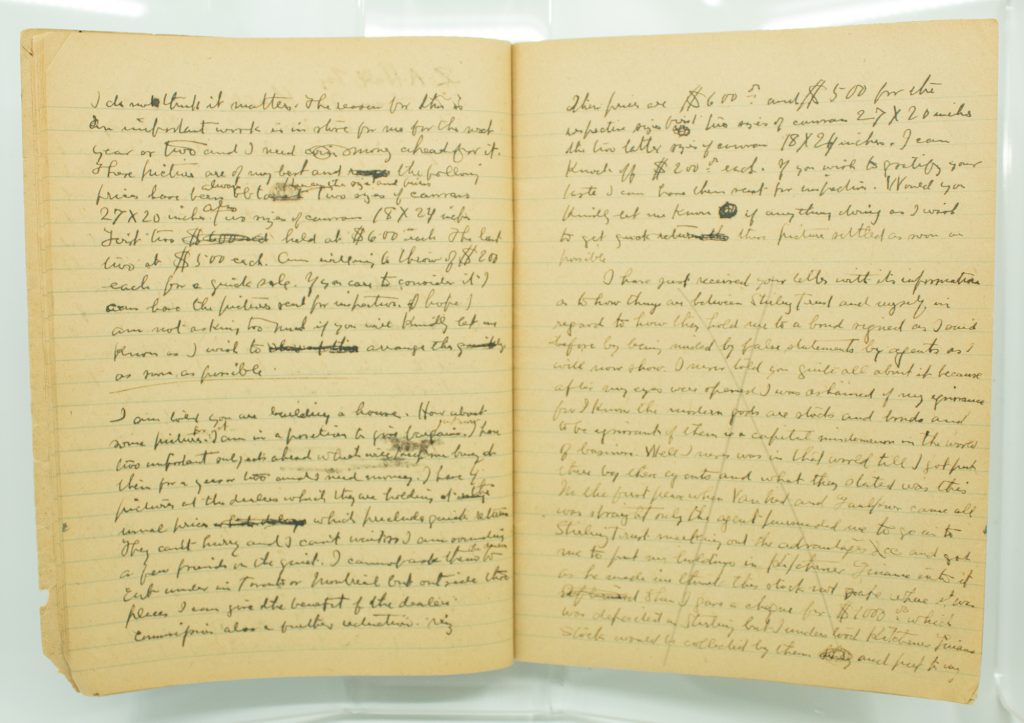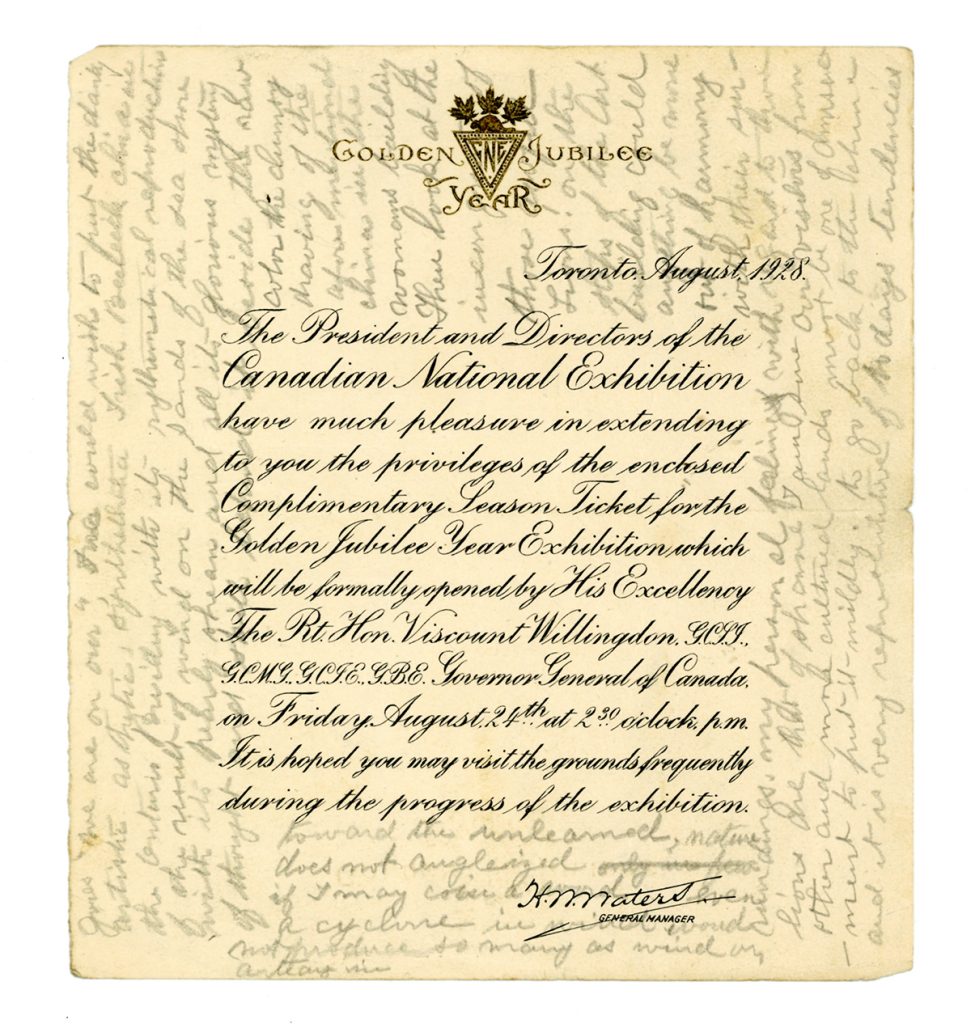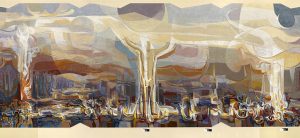This Black Friday, as shoppers scramble to the shopping centres, hoping to score some great deals, we’d like to explore the origins of the term “Black Friday” and how its history relates to the life of Homer Watson.
The origin of “Black Friday” is the subject of some debate. One of the earliest stories referring to “Black Friday” is actually a story of financial hardship. The story dates to September 24, 1869, when two Wall Street stockbrokers decided to purchase as much gold as they could, increasing the demand and by extension, its price, and then sell it all to make a massive profit. This misguided attempt at fast profit crashed the stock market in the process, leading to a financial recession. This date, and days related to stock market crashes would later be referred to as “Black” days. The term was only used for the purpose we recognize today in the 1950s, by police in Philidelphia who were forced to deal with the chaos associated with the substantial influx of shoppers to the city centre for post-Thanksgiving retail sales. The term now acts as an unintentional nod to the duplicitous nature of the economy.
Homer Watson was no stranger to financial hardship and experienced his own “Black” day on October 24, 1929, or “Black Thursday” when the stock market crashed and led to the Great Depression of the 1930s. Watson lost most of his life savings as a result and lived the remainder of his life in financial hardship. Evidence of the considerable impact the crash had on Watson’s life is frequently observed by our team when reviewing the writings of Homer Watson from this period.
This notebook contains drafts of letters written by Homer Watson detailing the financial issues he was experiencing at the time. Watson frequently mentions trying to find buyers for his paintings. During this challenging time, he was willing to sell his pieces at a considerable discount, hoping to make the offer more attractive to potential buyers. He also outlined some of his stock dealings, specifically complaints about a stock that he had invested a lot of money in having poor returns, even going so far as to accuse the dealers of scamming him;
I have just received your letter with its information as to how things are between Stirling Trust and myself in regard to how they hold me to a bond signed as I said before by being mislead by false statements by agents as I will now show. I never told you quite all about it because after my eyes were opened I was ashamed of my ignorance for I know modern gods are stocks and bonds and to be ignorant of them is a capital misdemeanor in the world of business.
The frugality of the period can be seen not just in Homer’s writings, but also in the physical materials of the letters. Paper and postage-saving techniques like cross-writing (turning your paper sideways and continuing to write), writing in the margins, reducing the quality and thickness of paper and reusing any available paper scraps appear frequently.

These drafts continue into the margins.

These artifacts demonstrate in a tangible way, the great impact that the Depression had on people of the period. Living through a period of economic upheaval, Homer Watson and his family did their best to adapt to their new economic situation as best they could. Saving paper, picking up commissions where he could, and even slashing his prices to have a Black Friday sale of his own, Homer’s situation is reminiscent of our own precarious economic state. While this day can be enjoyable for consumers and a blessing to those of us facing the worst of our current economic downturn, it is important to avoid discounting the suffering of people in the not-too-distant past, and perhaps glean some useful information and courage from those who have experienced the same troubles before us.
















